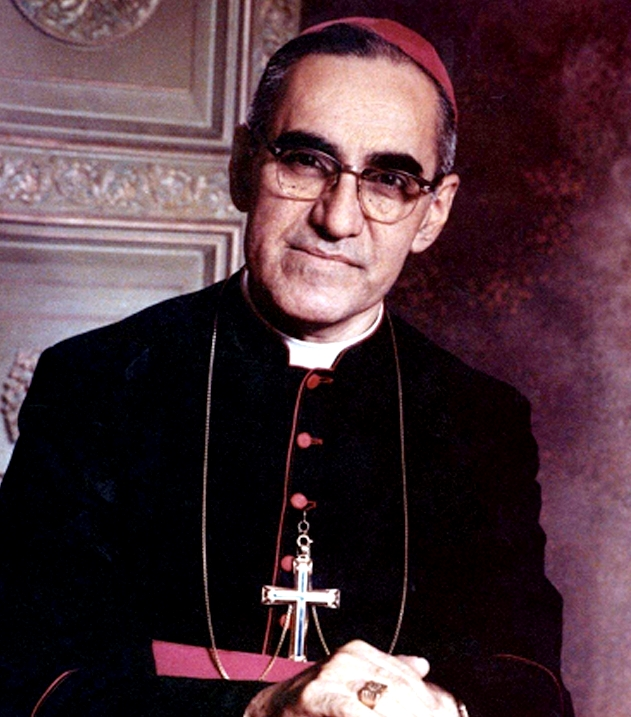“A MESSENGER OF HOPE”
Óscar Romero
 Putting the newspaper down on his desk and placing his head in his hands, the tired priest let his mind run wild. He had dealt with harsh criticism, anger, and even threats before, and reading such degrading comments about him in the newspaper was something he was used to, but suddenly he felt something different. Usually, when he read such criticisms in the newspaper, he was able to bounce back quickly, not worrying about what the writers thought of him. He could not recall ever feeling so hopeless. Looking up at the crucifix on his wall, he prayed for courage and for hope. But who was this troubled priest, and why was he being criticized?
Putting the newspaper down on his desk and placing his head in his hands, the tired priest let his mind run wild. He had dealt with harsh criticism, anger, and even threats before, and reading such degrading comments about him in the newspaper was something he was used to, but suddenly he felt something different. Usually, when he read such criticisms in the newspaper, he was able to bounce back quickly, not worrying about what the writers thought of him. He could not recall ever feeling so hopeless. Looking up at the crucifix on his wall, he prayed for courage and for hope. But who was this troubled priest, and why was he being criticized?
Óscar Romero was born on the fifteenth of August, 1917. He went to Rome to study to become a priest and was ordained in 1942, at the age of twenty-four. He was a very dynamic priest who cared deeply for the poor. After serving in San Miguel for over twenty years, he was appointed auxiliary bishop in 1970. He was not as accepted in his role as auxiliary bishop, and it was at that assignment that he had his first taste of criticism.
After spending a brief amount of time serving the people of Santiago de Maria as their bishop, Óscar Romero was appointed Archbishop of San Salvador in 1977.
Óscar Romero used his gifts as a speaker to tell his flock what was going on in the country. He highlighted the cruelty that was commonplace in their society and encouraged reform. He denounced the massacres and the torture and begged the leaders of the country to turn away from their violent, bloodthirsty ways. Speaking on behalf of the poor, Archbishop Romero condemned the evil actions of the government and reminding them “THERE IS A SOLUTION!...WE CAN REBUILD OUR COUNTRY!”
He remained comforting to his people. “AT A TIME OF SO MUCH CONFUSION AND...ANGUISH I ALWAYS WANT TO BE A MESSENGER OF HOPE AND JOY,” Archbishop Romero told them in one homily. And he was. His gentle smile caused all fear to diminish, and his constant repetition of the simple phrase “there is hope” restored people’s hope.
Archbishop Romero displayed the characteristics of a true shepherd - he was brave, loyal, genuine, and he did not care about what those in power thought of him. Bombarded with thousands of lies in the press, the stalwart archbishop never lost his cool. Always keeping his focus on G’D, the archbishop continued to do his job despite all the negative forces that wanted to overthrow him.
On 24 March 1980, at 6.26pm, the archbishop fell before the altar while celebrating Mass. He had been silenced, but as he had once said, he lived on in the hearts of the El Salvadoran people.
Usually in a story, this is where you read, “and the government was so moved by the strength of Archbishop Romero that they reformed their ways, and the country is now free from all past errors”. Sadly, those words are not true in this case. El Salvador is still plagued by destruction. Gang violence is constant, and drugs run rampant. But as the archbishop once said, there is always hope. Archbishop Romero is praying for his people from heaven. We can use our own prayers to pray for the land named for our Savior that was so dear to the archbishop’s heart. And, like Archbishop Romero, let us pray that we too can find the courageous voice inside our hearts so we can speak for the truth.






